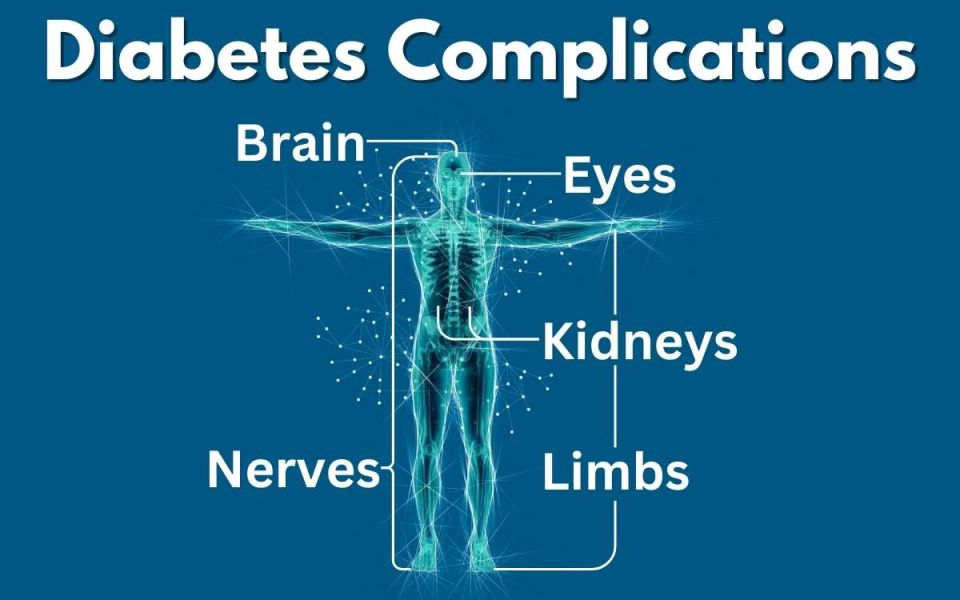Diabetes Complications From Your Head To Your Toes!

There is a common saying that “diabetes will not kill you, but its complications will.” Complications from diabetes occur primarily due to damage to small or large blood vessels. Small blood vessel (microvascular) damage affects organs and systems where these small vessels are critical to function, such as with delicate sensory or filtering systems. Large blood vessel (macrovascular) damage affects large systems which use a lot of blood.
Microvascular complications include:
- Eye: Diabetic retinopathy, Diabetic macular edema (can lead to blindness)
- Kidney: Diabetic nephropathy, Chronic kidney disease (CKD)
- Nerve: Diabetic neuropathy, Peripheral neuropathy (can lead to sexual dysfunction, gastroparesis, and foot ulcers)
Macrovascular complications include:
- Heart: Coronary artery disease (CAD), Myocardial infarction (MI or heart attack)
- Brain: Stroke or cerebrovascular accident (CVA)
- Limbs: Peripheral artery disease (PAD), Lower extremity amputations
Other related conditions include mental changes such as Alzheimer's disease and depression.
If you have been diagnosed with diabetes, it is extremely important to manage and control your blood sugar levels. This will help minimize and prevent complications that arise from uncontrolled diabetes. Although there is no cure for diabetes, there are many effective avenues available to help manage and prevent the resulting complications. Therapies include glucose monitoring, meal planning and food choices, regular exercise, and prescribed medications. Therapies continue to improve with new research. Researchers are working tirelessly to find new therapies for diabetes and its complications. If you would like to experience science first-hand and help move medicine forward, consider volunteering for a clinical trial!
Updated 6/24/2024 by Staff Writer / Editor Benton Lowey-Ball, BS, BFA
Click Below for ENCORE Research Group's Enrolling Studies
References:
Balaban, J., Bijelic, R., Milicevic, S., Stanetic, K., & Grbic, N. (2020). Correlation between extracutaneous microvascular complications and diabetic foot ulcers in patients with type 2 diabetes mellitus. Medical Archives, 74(6), 444. https://www.ncbi.nlm.nih.gov/pmc/articles/PMC7879372/
Blair, M. (2016). Diabetes mellitus review. Urologic nursing, 36(1). http://dx.doi.org/10.7257/1053-816X.2016.36.1.27
Roglic, G. (2016). WHO Global report on diabetes: A summary. International Journal of Noncommunicable Diseases, 1(1), 3-8. https://journals.lww.com/ijnc/fulltext/2016/01010/WHO_Global_report_on_diabetes__A_summary.2.aspx



